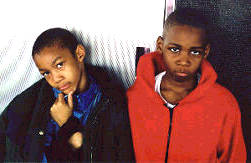 and reach thousands of daily visitors
and reach thousands of daily visitorsThe complete set of 198 Hints are available in paperback from the CYC-Net Press store.

When we see so many acts of violence and destruction we easily become angry and aggressive ourselves, or we despair, not knowing what to do. How can these youth, we ask, have so little responsibility? How can they be so unconcerned and callous to others? Have they no feelings, no awareness of the hurt they inflict?
Probably not. It is very likely that children and youth who have a capacity to hurt are short on the ability to discern hurt in others. This has much to do with their preoccupation with their own hurt and loss – and as much with their inexperience in reading the feelings of others.
Bruce Perry, a specialist on bullying, says that children who have trouble forming attachments lose the ability to read cues from other people, for example, signs of anger or hurt; people who can't connect with others, he says, cannot develop empathy.
Empathy is currently one of the buzz words in restorative work with law-involved youth. Kohn writes about children’s natural feelings of altruism and empathy but notes that some children "lose touch with their natural need to help when they shut down as a result of the physical or emotional pain inflicted upon them."
One of the reasons for a lack of conscience and empathy in anti-social and aggressive youth is that they have not built up a sense of people’s significance – neither their own significance, and as a consequence, nor a sense of others’ significance. Without a capacity for empathy, they have a poor understanding of the impact their behaviour has on others.
So there is something we can do with our tougher kids: More effective than moralising and blaming, punishing and rejecting, it is the hard daily work of giving them words for their feelings, acknowledging and responding to their feelings, so that they feel attended to and significant. They in turn are increasingly able to understand when we help to articulate the feelings and the significance of others – and so, able to empathise.